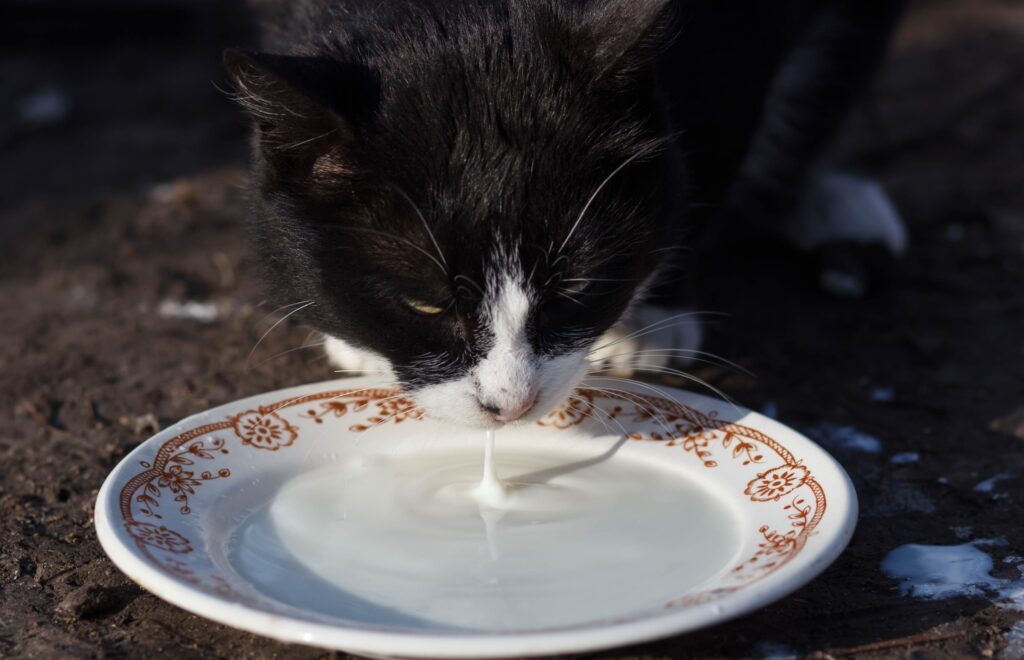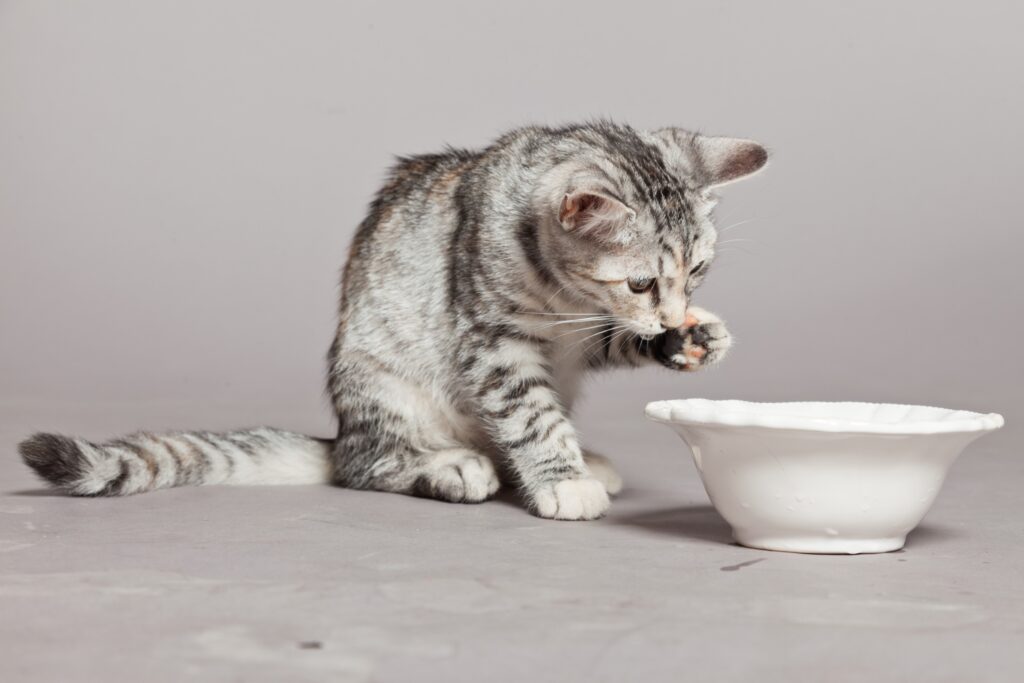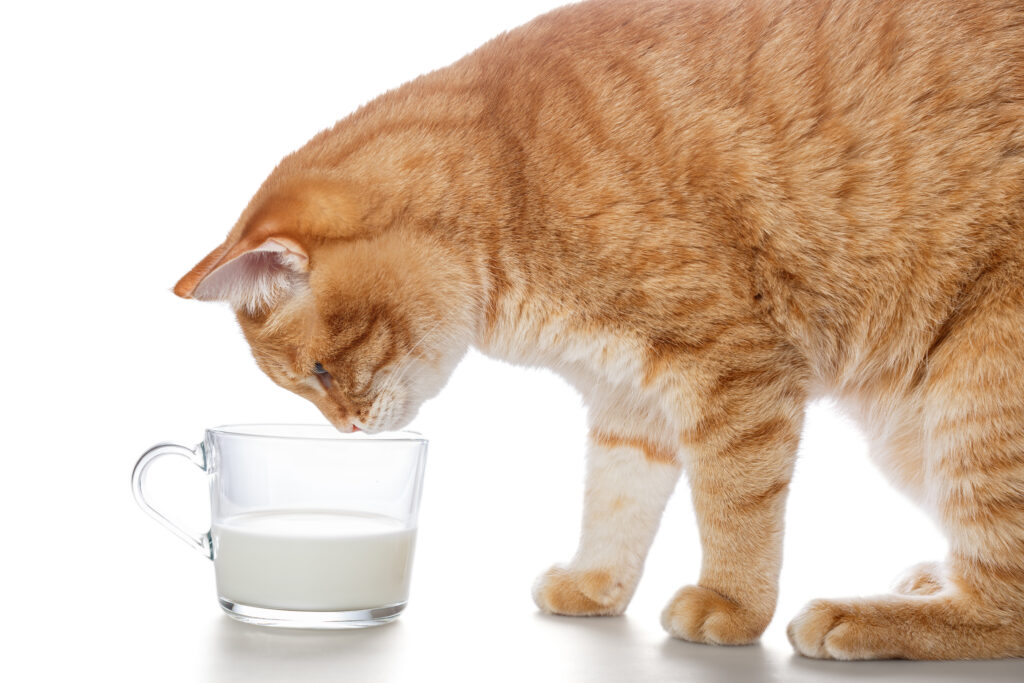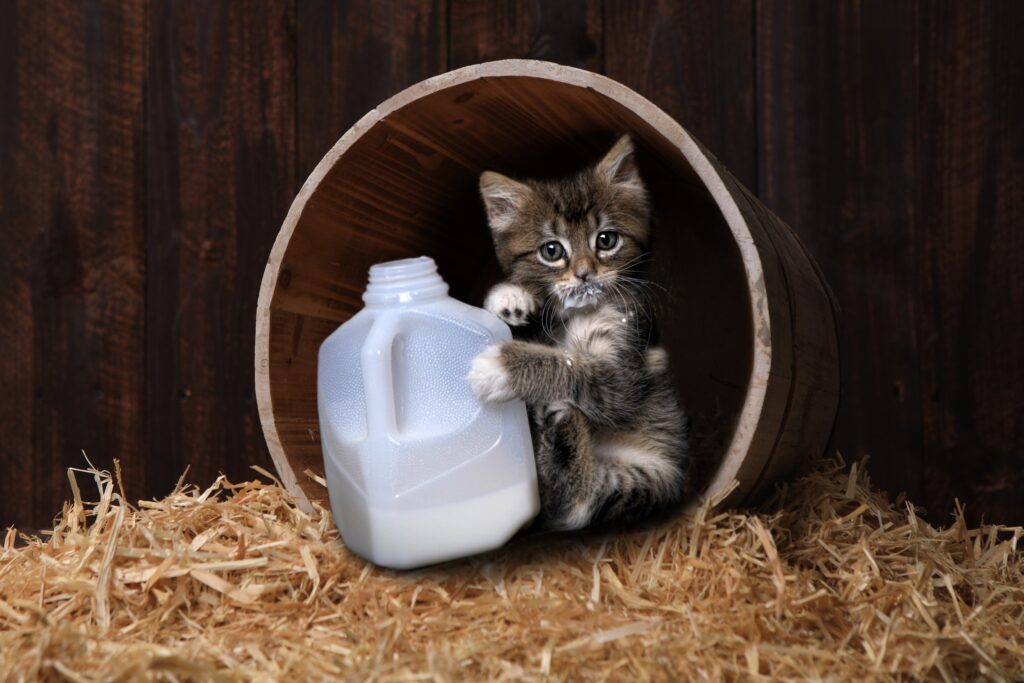Key Messages
➜Cats do best on a diet rich in animal proteins and fats, low in carbs, to match their carnivorous instincts.
➜Can cats have oat milk? While oat milk is lactose-free, it lacks the necessary animal proteins and may have additives, so it’s not ideal for cats on a regular basis.
➜Consider milk specifically formulated for cats, and talk to a vet before changing your cat’s diet.
In recent years, oat milk has become a popular alternative to regular cow’s milk among those seeking a plant-based milk alternative. Its creamy texture and nutritional benefits have made it a favorite in many households.
But for cat owners looking to share this healthy life choice with their feline family members, the question arises: Can cats have oat milk?
Understanding cats are obligate carnivores, their diet must be rich in animal protein to meet their essential nutritional needs. Unlike humans, who thrive on a more varied diet, cats derive little nutritional value from plant-based sources.
This is an important piece of information for pet owners to remember when considering sharing their oat milk—or any human food, for that matter—with cats.
What is Oat Milk?
Oat milk is a plant-based milk alternative made by blending water and oats together and then straining the mixture to remove the solid residue.
The result is a creamy liquid with a mild, slightly sweet flavor, which has made it a popular choice for those looking for dairy-free or vegan milk options.
It can be fortified with vitamins and minerals to enhance its nutritional profile, including calcium, vitamin D, and vitamin B12, which are commonly found in cow’s milk.

Lactose Intolerance and Cats
Most adult cats suffer from lactose intolerance, meaning their digestive systems lack the enzyme needed to break down lactose found in dairy products. This condition can lead to digestive upset, including diarrhea and an upset stomach, if they consume regular cow’s milk or dairy items containing lactose.
When I brought my Bengal kitten, Roo, home last year, I learned that milk was still part of her diet. While kittens are able to digest lactose, they lose this ability as they get older. So, to make sure she didn’t develop any digestive problems, I gave her lactose-free milk while slowly transitioning her away from milk altogether onto a diet suitable for a growing kitten.
Cats Have Very Specific Diet Requirements
Understanding the nutritional needs of cats is critical to maintaining your pets’ overall health and longevity. Failure to meet these requirements can lead to health problems and even an early death.
As obligate carnivores, cats have specific dietary requirements that are distinct from humans and even other pets. They require a diet that is rich in animal-based proteins and fats. Their bodies are designed to metabolize nutrients from animal sources more efficiently than plant-based sources.
The key components of a cat’s diet include:
- High-Quality Protein: Protein is the cornerstone of a cat’s diet. It’s essential for growth, maintenance, and energy. Cats require certain amino acids that are only found in animal tissue, such as taurine, which is critical for heart health, vision, and reproduction.
- Fats: Fats provide energy, help absorb certain vitamins, and contribute to a healthy skin and coat. Omega-3 and omega-6 fatty acids are particularly important.
- Vitamins and Minerals: Cats need various vitamins and minerals in their diet, including vitamins A, D, E, and K, as well as calcium, phosphorus, and magnesium, among others. These support various bodily functions, from bone health to blood coagulation.
- Water: Adequate hydration is essential, especially since cats have a low thirst drive. Wet food can help meet their hydration needs.
What you didn’t see in the above list is carbohydrates. Unlike omnivorous humans who can derive nutrients from a wide range of plant and animal sources, cats have little requirement for carbohydrates. Not only that, they also have limited ability to properly digest carbs.

Oat Milk: A Safe Alternative to Cow Milk?
Oat milk contains no lactose, making it seem like a great option for those looking for lactose-free alternatives. However, it’s important to note that oat milk also lacks animal protein, an essential component of a cat’s diet.
Furthermore, oat milk has generous amounts of carbohydrates. An excess of carbohydrates in a cat’s diet can lead to weight gain, digestive issues, and other health problems such as diabetes or liver disease.
Another concern is the presence of artificial sweeteners or additives in commercial oat milk, which could pose health risks, including allergic reactions or gastrointestinal upset.
Xylitol is a popular artificial sweetener used in many food products that is poisonous to dogs. While cats do not seem to be sensitive to small amounts of xylitol, the safety of xylitol for cats remains inconclusive and I always recommend to avoid feeding cats anything with xylitol.
All of these concerns also apply to other types of plant-based milk replacement products like almond milk, soy milk, or coconut milk.
Can Cats Have Oat Milk?
So is oat milk safe to give to cats? The short answer is yes, a small amount is not going to harm your cat. However, oat milk should only be given in small amounts as an occasional treat rather than a regular part of your cat’s diet.
Ensure the oat milk is plain, free from any additives or artificial sweeteners, and offered only as a minor part of their overall nutrition plan.
For cat owners wishing to indulge their cat’s taste of milk without adverse effects, alternatives like specially formulated cat milk are available. These products are designed to cater to the cat’s nutritional needs without the lactose that causes digestive issues.
Alternatively, you can also give your cat small amounts of lactose-free milk intended for human use.
Final Thoughts on Oat Milk for Cats
While oat milk is a healthier alternative for humans looking to avoid dairy, it’s not the best choice for our cat companions.
Cats’ digestive systems and nutritional needs are significantly different from ours, and it is important to keep their diets closely aligned with their natural dietary requirements.
If you’re looking to treat your cat or vary their diet, consider safer and more appropriate options designed specifically for them. Always consult with your veterinarian if you have any concerns regarding your cat’s diet and nutrition. And remember, moderation is key when it comes to sharing any human food with cats.
So while a small amount of oat milk won’t harm your cat, make sure to prioritize their overall health by limiting their intake and opting for more suitable options specifically formulated for felines.
Disclaimer: This article is intended for informational purposes only, and does not constitute medical advice. Always consult your veterinarian if you have specific concerns about your pet’s health.

[Image credit: All images are used under license or with permission]

